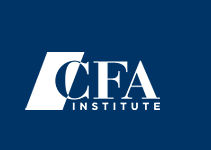The CFA Conundrum
So, if you are doing an MBA in Finance from a top B-School, should you really invest in a CFA? I am sure this question has popped up in many a mind in various forms. Let us try to answer this in as simple a way as it can be.
Does CFA add value if you are doing MBA Finance?
Yes, and No. Let me explain.
If you pay attention in all your finance classes, and get all your concepts cleared in the major courses (accounting, financial management, security analysis, derivatives, portfolio management, fixed income, risk), then there is very little that a CFA can add to you content wise, from the aspect of what the recruiters need you to know. I know many friends who sailed through B-School with good finance roles/knowledge without ever touching CFA books. Also, remember that most finance jobs need only a sound knowledge of the basics and a good thought process.
What it does add is more knowledge of things such as Private Equity, VC, Pension accounting and so on. Are these areas really useful for placement interviews – not really. It does add to your knowledge though, and if leveraged the right way, might help you get an edge in your interviews. But most interviews never go to these depths, and so the utility from this aspect is limited to zero.
So how is it useful? It is useful from a shortlist perspective as most of us come into B-Schools with zero to very few finance 'CV Points'. Here, it helps differentiate your CV as it is a far more powerful point compared to NCFM/winning a stock trading game/etc. Particularly in a country where 90% of the students are engineers with no prior grounding/experience of finance.
Level 1/2 cleared candidates do get an advantage in summers and the same holds true for Levels 2/3 in final placements. It is just a way of showing the seriousness of your 'fin' interest to the recruiter. It shows you were interested to read 6 additional books and also splurge some serious cash! On the flip side, it also ensures that you have more to revise before your interviews, since when you claim to have cleared a certain level of the CFA program, you better know at least the major portions of that level pretty well. But increasingly, it is becoming a hygiene factor in many schools, and since the exam calls for more of diligence than brilliance, I expect this ratio to shoot up in the coming days - especially in schools which are not renowned for great finance placements.
As far as the impact/usefulness of the CFA is concerned w.r.t. the various finance-domain roles, it is a mixed bag. For roles such as Corporate Finance, Consumer Banking, Corporate Banking and Project Finance, the CFA may not be really relevant.
Compared to these, in the fields of Equity Research and Asset Management, a CFA will be a definite plus (both from a profile and a knowledge perspective).
Relevance to PE is really a subjective call, since often specific domain knowledge might also be sought after.
Investment Banking is again more a client-interaction role, and while the CFA might be a good add from a CV perspective, it may not really matter for day to day work.
Can you manage the CFA workload along with the course load?
I would think so. If you make the decision in time, and plan out your study, it should not be too difficult. Since the first opportunity for Level 1 is six months after you join school, your accounting and finance basics are already in place by then. For Levels 2/3, you can study in your summers. Yes, it might stretch you at times, but (a) it is far easier to get done with these exams when you are studying than while you are working, (b) if you clear them, you do stand to gain some of the benefits highlighted earlier.
How easy or difficult it is to manage is down to the individual. If you are someone who relies more on hard work than sheer brilliance, then you might want to start a little early (around Oct for the Dec Level 1, and around March/April for the June Levels 2/3), and stick to a plan. I say this because revising 6 books for a 3 hour exam (the second exam is essentially a repeat of the first one with different questions) can be quite painful and revision itself can consume a couple of weeks sometimes. If you are more of brilliant child, then you really don’t need much advice!
-Meet Kachhy
The author is an alumnus of XLRI School of Business & Human Resources (Batch of 2011). Currently working as a financial Analyst at Goldman Sachs Asset Management (Investment Management Division), he has interned with Axis Bank. Prior to his MBA, Meet worked for almost three years with J. Ray McDermott ME Dubai (an offshore EPC contractor in the O&G business), after completing his BE (Hons.) from BITS Pilani (Dubai) in 2006. He has cleared all the three levels of the CFA program.
If you are preparing for Summer Placements or Final Placements, please have a look at our Career Guide - The InsideIIM Career Guide
Summer Placements Prep – Finance Roles

